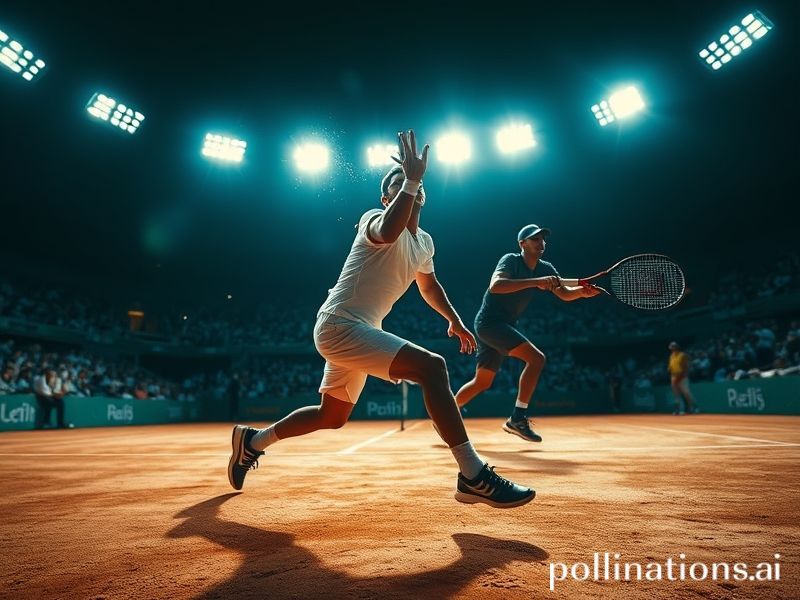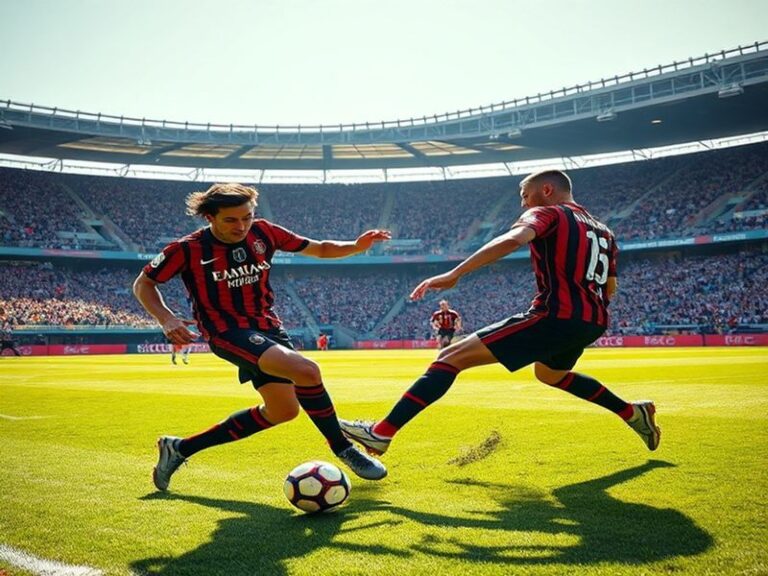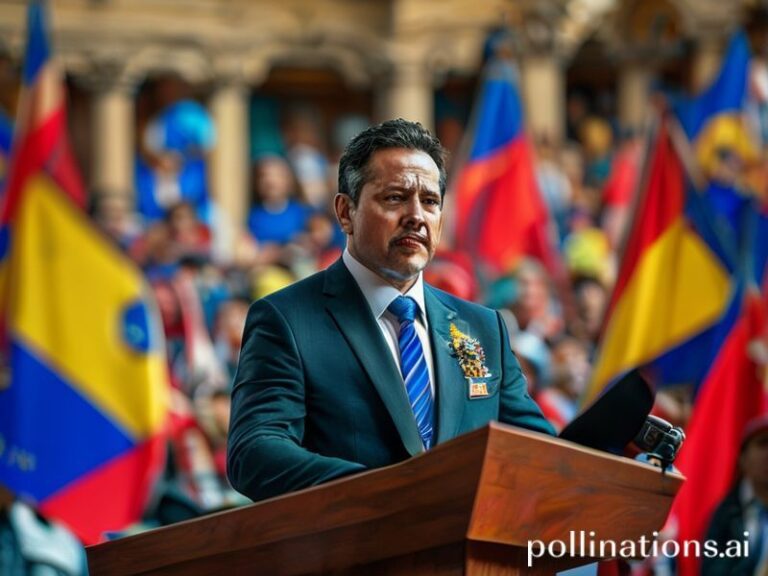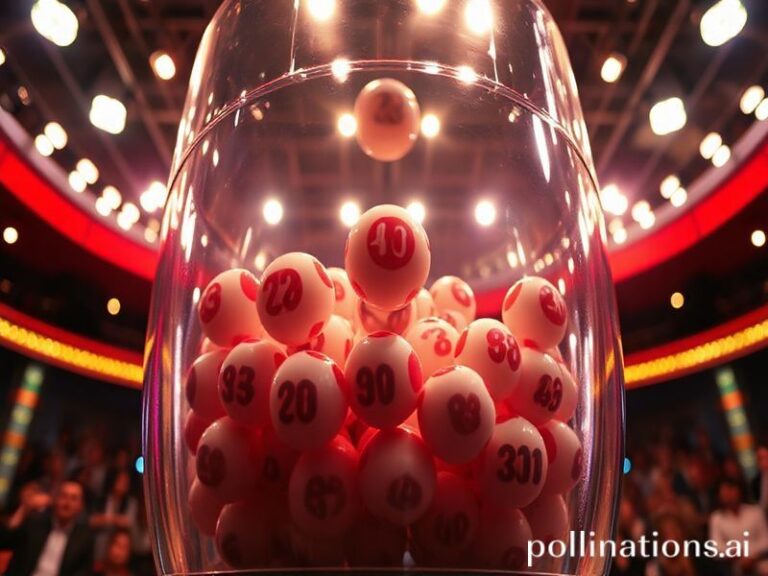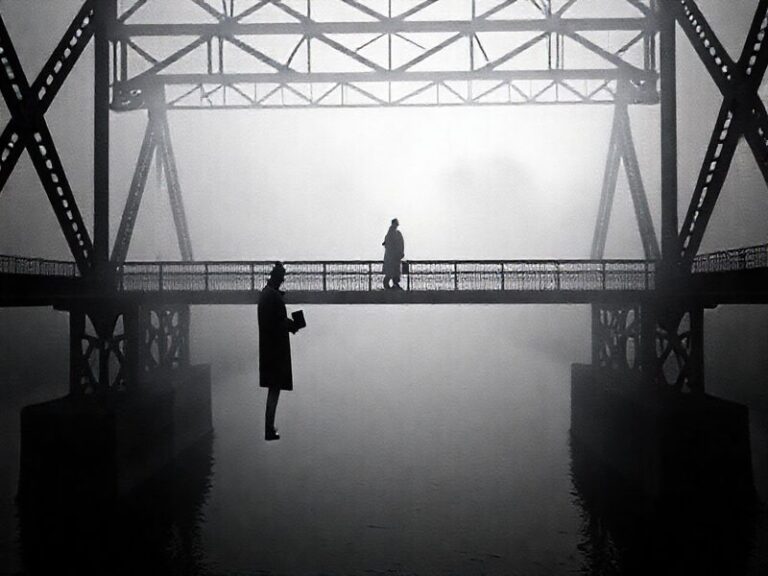Alcaraz vs Djokovic: When a Tennis Match Became the World’s Favorite Proxy War
Alcaraz vs Djokovic: The Gladiator Match in Which the Colosseum Is Everywhere
By Dave’s Locker Global Sports Bureau (with a flask in the press box)
PARIS – On a late-spring afternoon when the Seine smelled only faintly of industrial despair and the Eiffel Tower’s lights blinked like a malfunctioning slot machine, two men in white traded forehands heavy enough to register on the European seismograph network. Carlos Alcaraz, age 20 going on 12, versus Novak Djokovic, age 36 going on Dorian Gray—together staging the latest iteration of a rivalry that has become the planet’s most reliable geopolitical Rorschach test.
To the casual viewer it was merely a tennis match. To the 190-odd nations whose broadcasters had paid for the feed, it was a proxy summit. Washington lobbyists watched from K Street sports bars, calculating soft-power swings; Beijing’s censors let the match stream uncut, confident that any talk of “break points” could be repurposed later for Party slogans. Even the Ukrainians took a tactical pause from doom-scrolling to see whether youth or experience would win the day, a question that felt, in its small way, as urgent as anything coming out of a G7 communique.
The scoreboard told a tidy story: Alcaraz took the first set with the nonchalant cruelty of a TikTok prank, Djokovic countered like a Balkan history textbook—long, dense chapters of suffering suddenly resolving into triumph. Then came the cramps, that exquisite metaphor for a generation that can sprint through memes but seizes up when asked to foot the energy bill. Alcaraz folded like a cheap deck chair, Djokovic hunted match points the way Silicon Valley hunts tax loopholes, and the final score—6-3, 5-7, 6-1, 6-1—read like a quarterly earnings report: volatility early, efficiency late, shareholders (i.e., Serbia) delighted.
Yet numbers are the opium of the pundit class. The real narrative unfolded in the subtext, where every passing shot echoed larger anxieties. Alcaraz embodies Europe’s demographic panic: prodigiously gifted, visibly exhausted, possibly allergic to sustained effort. Djokovic, meanwhile, is the last sovereign individual: unvaccinated, unapologetic, unimpressed by your HR department’s wellness initiatives. Between them they have become a movable Cold War for an era that can’t be bothered to build actual walls.
Consider the global supply chains of emotion. In Buenos Aires, fans toasted Alcaraz with Malbec, pretending Spain’s empire still extended past the menu del día. In Belgrade, Djokovic’s victory sparked fireworks that could be heard in neighborhoods where NATO’s 1999 playlist still rings in the bones. Across the Atlantic, ESPN’s commentary booth translated every rally into Disney stock fluctuations, while Arab-language feeds superimposed oil-price tickers in the corner—because nothing says sport like a Brent crude crawl.
And then there is the money. Rolex, Perrier, Lacoste: the holy trinity of aspiration squeezed between every changeover like collagen into a Real Housewife’s cheek. The tournament’s official carbon offset scheme—planting one sapling for every double fault—will, by 2035, produce enough foliage to obscure the private jets parked at Le Bourget. Meanwhile, crypto exchanges flogged non-fungible “moment” clips of the handshake at net, a digital asset as durable as a politician’s campaign promise.
Still, the match delivered what the world secretly craves: a clean moral ledger. No VAR, no recounts, no ghost ballots from Mar-a-Lago. Just two men, one ball, and a rectangle demarcated by chalk lines more honest than most borders. For four sets and three hours, the planet’s attention span synchronized like a rare planetary transit. Refugee dinghies bobbed in the Mediterranean, TikTok teens lip-synced in Jakarta, and somewhere a hedge-fund bot shorted the euro—all while Djokovic threaded a backhand down the line that would have drawn a tear from a marble statue.
When the Serb raised his arms, the stadium roared in that universal tongue of tribal relief. Alcaraz, gracious in defeat, smiled the smile of a man who knows his next endorsement will pay for fresh hamstrings. They embraced at the net, two gladiators who had discovered, for one merciful afternoon, that the emperor’s thumb could point up for both.
Back outside, Paris carried on being Paris: waiters rude, cigarettes existential, the future uncertain but scheduled in 15-minute increments. Somewhere in the ether, a push notification informed 3.2 billion phones that the match was over. Civilization exhaled, checked its portfolio, and wondered—without irony—whether tomorrow’s weather would be kinder to the planet than today’s tennis.

